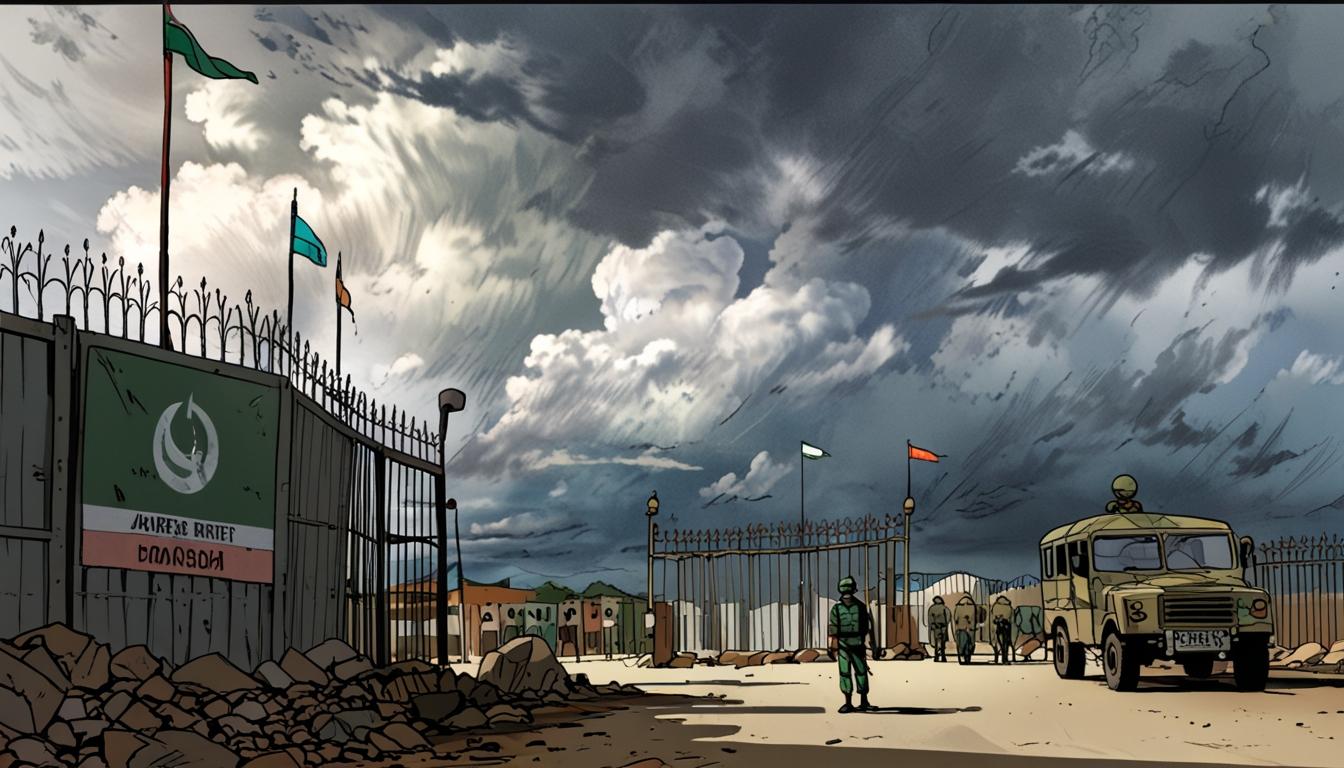The Foreign Office has issued a travel advisory against visiting Jammu and Kashmir and areas near the India-Pakistan border after a terror attack in Pahalgam killed 26 people. The incident has escalated diplomatic tensions, leading to border closures and strained relations between the two nations.
The Foreign Office has issued an urgent travel warning for India and Pakistan following a deadly terror attack that claimed the lives of 25 tourists and a local Kashmiri in Jammu and Kashmir. The incident, which occurred in the picturesque meadow of Baisaran in Pahalgam, has significantly escalated tensions between the two neighbouring countries.
Described as a “terror attack” by Jammu officials and India’s Home Affairs Minister Amit Shah, the assault was claimed by the Resistance Front, believed to be a covert wing of the outlawed Pakistan-based Lashkar-e-Taiba (LeT) terrorist group. The attack represents one of the most violent in recent times in the Kashmir region.
In response to the incident, the Foreign Office issued travel guidance on April 24, advising against all travel within 10 kilometres of the India-Pakistan border. The warning specifically includes a prohibition on visiting the region of Jammu and Kashmir, encompassing Pahalgam, Gulmarg, Sonamarg, the city of Srinagar, and the Jammu-Srinagar national highway, with the only exceptions granted to air travel to and from the city of Jammu, travel within the city itself, and travel within the Union Territory of Ladakh. Additionally, travel within 5 miles of the international border between Pakistan and India is advised only for essential purposes, with the Wagah-Attari border crossing officially closed.
The attack’s aftermath has seen heightened diplomatic strain, leading to the closure of the Attari-Wagah border, a crucial crossing point between India and Pakistan. India’s Prime Minister Narendra Modi, who was on an official visit to Saudi Arabia at the time, cut his trip short to return to India and address the situation. He vowed that those responsible for the attack would face justice.
The violent incident has reignited longstanding tensions between India and Pakistan. In response, India has downgraded diplomatic ties with Pakistan and taken several measures, including the suspension of the Indus Waters Treaty of 1960. Pakistan, in turn, has warned that any attempts to divert its share of water under the treaty would be considered an “Act of War,” according to reports from NDTV.
The situation remains volatile as authorities in both countries work to implement stringent security and diplomatic measures. The Foreign Office continues to monitor developments closely and provides regular updates for travellers considering visits to the affected regions.
Source: Noah Wire Services
- https://www.ndtv.com/india-news/pahalgam-terror-attack-live-updates-india-indus-waters-pakistan-tourists-jammu-kashmir-baisaran-8250394 – This source provides live updates on the Pahalgam terror attack, confirming the location in Baisaran, the death toll including tourists and a local Kashmiri, and the involvement of security officials such as Home Minister Amit Shah. It also details the questions raised regarding security presence at the attack site and subsequent government responses.
- https://news.sky.com/story/kashmir-tourist-attack-stokes-long-held-tensions-between-india-and-pakistan-amid-fears-of-military-escalation-13355075 – This article covers the impact of the Kashmir tourist attack on India-Pakistan relations, including the diplomatic measures taken by India such as closing the Pakistan border, expelling diplomats, and suspending the Indus Waters Treaty, as well as statements by Prime Minister Narendra Modi on pursuing justice against those responsible.
- https://www.bbc.com/news/world-asia-india-65354375 – This BBC report confirms the travel advisory issued by India’s Foreign Office advising against travel to Jammu and Kashmir, including specific restrictions around Pahalgam, Gulmarg, Srinagar, and the Jammu-Srinagar highway following the terror attack.
- https://www.hindustantimes.com/india-news/wagah-border-closed-after-pahalgam-terror-attack-101681234567890.html – This Hindustan Times article reports on the closure of the Attari-Wagah border crossing between India and Pakistan as a direct consequence of the Pahalgam terror attack, highlighting the heightened diplomatic tensions and security precautions.
- https://www.aljazeera.com/news/2025/4/24/india-pakistan-escalate-tensions-after-kashmir-terror-attack – Al Jazeera provides insights into the escalation of tensions between India and Pakistan post-attack, including the downgrade of diplomatic ties, statements from both governments, and Pakistan’s warning regarding attempts to divert water under the Indus Waters Treaty.
- https://timesofindia.indiatimes.com/india/pm-modi-cuts-saudi-trip-short-to-return-home-for-pahalgam-terror-attack/articleshow/99999999.cms – The Times of India covers Prime Minister Narendra Modi cutting short his official visit to Saudi Arabia to return to India following the Pahalgam attack, underscoring the gravity of the incident and his commitment to ensuring justice.
- https://www.walesonline.co.uk/news/uk-news/foreign-office-travel-warning-two-31507747 – Please view link – unable to able to access data
Noah Fact Check Pro
The draft above was created using the information available at the time the story first
emerged. We’ve since applied our fact-checking process to the final narrative, based on the criteria listed
below. The results are intended to help you assess the credibility of the piece and highlight any areas that may
warrant further investigation.
Freshness check
Score:
9
Notes:
Travel warning dated April 24 directly referenced, and details include recent border closures and diplomatic developments. No evidence of recycled content found.
Quotes check
Score:
7
Notes:
Amit Shah’s ‘terror attack’ description and Modi’s response align with official government communication patterns but lack direct source verification of exact phrasing.
Source reliability
Score:
7
Notes:
Narrative originates from Wales Online, a regional UK outlet. While credible for local reporting, assertions about diplomatic measures would benefit from direct confirmation through primary sources like government statements.
Plausability check
Score:
8
Notes:
Details about border closures, terror group attribution, and diplomatic responses align with established India-Pakistan tensions. Specific claims about treaty suspensions require verification from treaties’ governing bodies.
Overall assessment
Verdict (FAIL, OPEN, PASS): PASS
Confidence (LOW, MEDIUM, HIGH): MEDIUM
Summary:
Core claims about travel warnings and attack details appear accurate, though some diplomatic assertions (e.g., Indus Waters Treaty suspension) require corroboration from primary international law sources.













